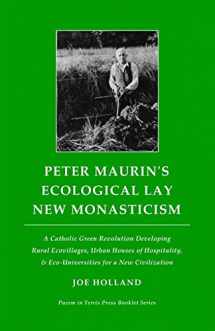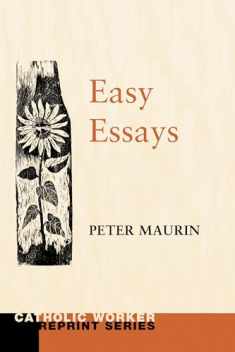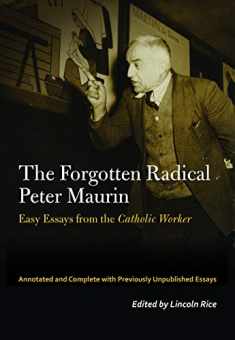
Peter Maurin's Ecological Lay New Monasticism: A Catholic Green Revolution Developing Rural Ecovillages, Urban Houses of Hospitality, & ... Civilization (Pacem in Terris Press Booklet)
Book details
Summary
Description
This book describes the vision of a "Green Revolution" proposed by Peter Maurin, co-founder with Dorothy Day of the Catholic Worker Movement. Peter's vision may be described as a new lay ecological monasticism for individuals and families. His program included three interrelated projects: 1) creation of rural ecovillages pursuing prayer, study, and agriculture; 2) creation of urban houses of hospitality to welcome the marginalized poor; and 3) ecological universities in which workers would become scholars and scholars would become workers. Peter saw the entire program as part of the search for a post-capitalist and post-Marxist new civilization, yet one rooted in ancient human spiritual, social, and ecological traditions.


We would LOVE it if you could help us and other readers by reviewing the book
Book review





